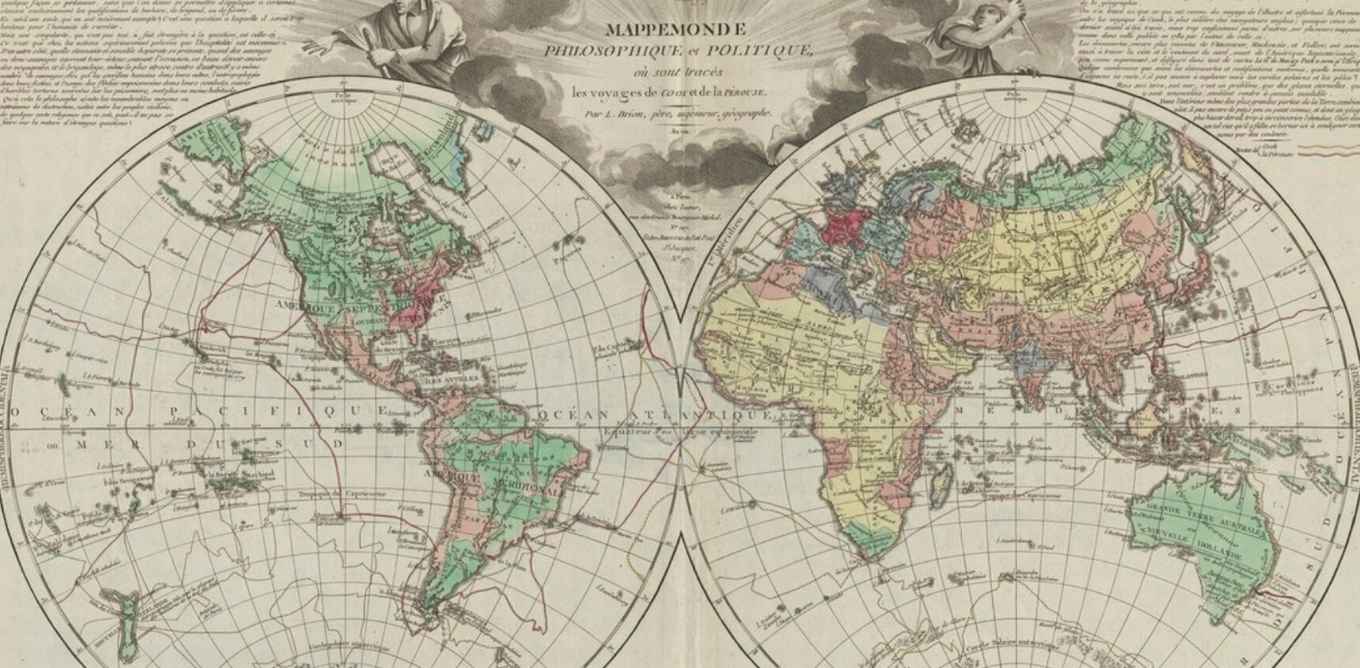Public lecture by Jeanne Morefield
- Start date
- 9 May 2023
- End date
- 14 March 2023
- Time
- 16:00
- Location
- Utrecht, Drift 23, room 0.12

Abstract
Since the late 1990’s, global attention to the issue of human trafficking (particularly sex trafficking) has skyrocketed within international institutions and among fascist aspiring conspiracy theorists. This talk turns to the last period in global history when international anti–trafficking campaigns were this widespread, the interwar era. I focus on how liberal internationalist supporters of the League of Nations used the putatively “non–political” issue of the “traffic in women and children” to negotiate tensions in the League’s world vision between its universal rhetoric and its ongoing commitment to racial hierarchy and imperialism. Rather than focus on how trafficking helped League internationalists deflect attention away from this disconnect, however, I draw upon Edward Said’s notion of “imaginative geography” to better understand the generative quality of trafficking. Read in this light, an investigation of the League’s archives reveals a complex discursive and bureaucratic process of knowledge production about a globe–spanning, criminal underworld – populated by anti–Semitic caricatures of traffickers and helpless victims – against which the League could invent and instantiate itself. A closer interrogation of interwar, anti–trafficking politics thus has much to tell us about the relationship between world making and underworld making in the liberal internationalism imaginary, and about the overlap between that imaginary and the dreamworld of fascism, both then and now.
Biography
Jeanne Morefield is an Associate Professor of Political Theory at the University of Oxford, a Fellow at New College (Oxford), and a Non-Resident Fellow at the Quincy Institute. Her scholarship sits at the intersection of political theory, international relations, and intellectual history with a particular focus on the relationship between liberalism, imperialism, and internationalism in Britain and America. She is the author of Covenants Without Swords: Idealist Liberalism and the Spirit of Empire (2005), Empires Without Imperialism: Anglo American Decline and the Politic of Deflection (2014) and Unsettling the World: Edward Said and Political Theory (2022). Her next book project, Underworld, examines the role of sex trafficking panics in the shared global imaginaries of liberalism and fascism. Morefield’s popular work has appeared in The Boston Review, Jacobin, Responsible Statecraft, and The New Statesman.
Location
Utrecht, Drift 23, room 0.12 and online
Registration
No registration is needed, unless you want to participate online. In that case, send an e-mail to: info@globalintellectualhistory.org.
About the Seminar
The Utrecht/Amsterdam Seminar Global Intellectual History is a platform for researchers from different faculties and departments at the University of Amsterdam and Utrecht University who are working in the field of intellectual history and related disciplines. These include, among others, the history of historical, legal and political thought, conceptual history, the social and cultural history of ideas, as well as research at the intersection between intellectual history, institutions, politics, and practices.
Worldwide, intellectual history is moving into new, exciting directions. Tapping into new source materials, covering longer stretches of time, dealing with broader geographical spaces, making comparisons and drawing connections on a global scale, as well as combining established and new (digital) methods, both young and up-coming as well as established experts are in search for new answers – and perhaps more importantly – new questions. The Utrecht/Amsterdam Seminar Global Intellectual History contributes to this development by providing a venue for presenting and discussing frontline research.